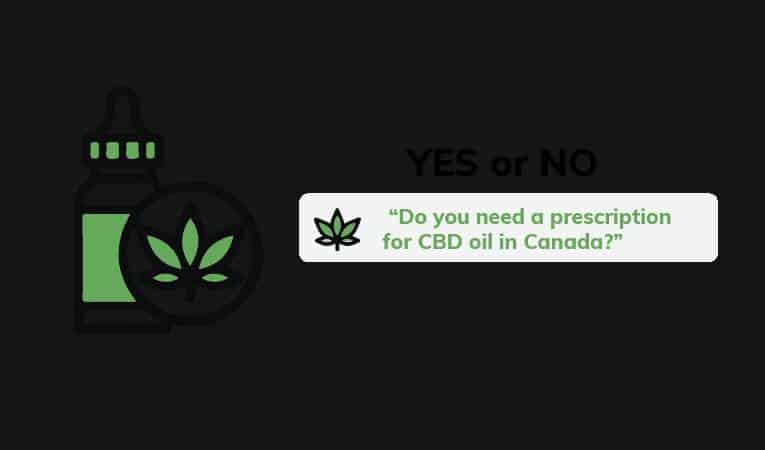CBD (cannabidiol) is everywhere—from oils and gummies to topicals and capsules. Users praise it for easing pain, anxiety, sleep issues, and inflammation. Yet despite its growing popularity, a common question remains:
Can doctors prescribe CBD oil? And if so, why don’t they do it more often?
This article uncovers why most doctors can’t or won’t prescribe CBD, examines its benefits and risks, and explains the legal and medical roadblocks still limiting its widespread clinical use.
1. CBD Isn’t Fully Approved by the FDA
One of the most important factors limiting doctor prescriptions of CBD is the lack of comprehensive FDA approval. As of now, the only FDA-approved CBD medication is Epidiolex, used to treat rare seizure disorders like:
-
Lennox-Gastaut syndrome
-
Dravet syndrome
For everything else—CBD oils, edibles, topicals—no formal approval exists. That’s why, even though patients ask, doctors can’t prescribe CBD oil for general use. These products haven’t gone through FDA safety and efficacy testing.
🔎 Related query: Why hasn’t FDA approved CBD?
👉 The FDA needs more clinical data before broadly approving CBD.
2. Limited Clinical Research Still Holds CBD Back
Although thousands of people report benefits, CBD is still under-researched. Current studies are often small, lack control groups, or are conducted on animals.
This raises several questions:
-
Is CBD clinically proven to do anything?
→ Early research shows promise, but large-scale human trials are limited. -
Is CBD recommended by doctors?
→ Some doctors suggest trying it, but few recommend it formally due to the lack of FDA oversight.
For many physicians, the absence of long-term safety data and dosage standards makes it difficult to confidently recommend or prescribe CBD—especially to patients with chronic conditions or on multiple medications.
3. Potential Drug Interactions & Side Effects
CBD interacts with cytochrome P450 enzymes in the liver—the same enzymes that metabolize over 60% of prescription drugs. This means that CBD can increase or decrease the effectiveness of other medications, including:
-
Blood thinners (like warfarin)
-
Antidepressants
-
Seizure medications
Because of this, doctors are cautious—especially when patients are taking multiple prescriptions.
Common CBD Side Effects Include:
-
Drowsiness or fatigue
-
Dry mouth
-
Diarrhea
-
Appetite changes
🔎 Query: Who should avoid taking CBD?
👉 Individuals on medications, pregnant or breastfeeding women, and those with liver issues should consult a doctor first.
🔗 Related: Can CBD Help with Joint Pain?
📜 4. Legal and State-Level Complexities
Thanks to the 2018 Farm Bill, hemp-derived CBD with less than 0.3% THC is legal at the federal level. However, state laws vary widely, and enforcement is inconsistent.
This legal uncertainty means:
-
Doctors in some states can’t recommend or prescribe CBD.
-
Even where legal, CBD is classified as a supplement, not a medication.
-
Can any doctor prescribe CBD oil?
→ Only neurologists prescribing Epidiolex can currently do so in a clinical setting.
For many physicians, the legal gray area adds to the hesitancy—especially in conservative or highly regulated states.
🔗 Curious about legal cannabis options? Explore Delta 8 vs CBD Oil
What Are the Real Benefits of CBD?
Despite the limitations, CBD has shown early promise in the following areas:
| Condition | Potential Benefit |
|---|---|
| Pain Relief | May reduce chronic pain by affecting inflammatory responses |
| Anxiety | Appears to lower cortisol and promote calm |
| Sleep | May enhance deep sleep stages and reduce nighttime waking |
| Neuroprotection | Being studied for epilepsy, MS, and Parkinson’s |
Many people self-report improvement, but again—more clinical evidence is needed before doctors can widely recommend or prescribe it.
🔗 Related: Are CBD Gummies for Sleep Effective
⚠️ CBD Safety Considerations
While CBD is generally considered safe, it’s not risk-free—especially in an unregulated market.
Key Concerns:
-
Quality Control: Some products contain more THC than advertised.
-
Contamination: Heavy metals and pesticides may be present in poorly sourced products.
-
Inconsistent Dosage: Without FDA regulation, dosages can vary greatly from label claims.
Tip: Always choose third-party tested products with clear COAs (Certificates of Analysis).
❓ Frequently Asked Questions (FAQs)
Q: Can doctors prescribe CBD oil?
A: Not in most cases. Only Epidiolex (for seizures) is FDA-approved and prescribable.
Q: Why hasn’t the FDA approved CBD for more uses?
A: There’s insufficient clinical evidence and concerns over unregulated products.
Q: Is CBD recommended by doctors?
A: Some integrative and holistic doctors may recommend it informally, but traditional doctors usually don’t prescribe it.
Q: Can I take CBD with other meds?
A: Possibly, but talk to your doctor. CBD may interfere with how your body processes certain drugs.
Q: Who shouldn’t take CBD?
A: Pregnant women, breastfeeding mothers, people on liver-metabolized meds, and children (unless directed by a specialist).
Final Thoughts: Why Doctors Aren’t Prescribing CBD (Yet)
So, can doctors prescribe CBD oil?
Technically, only in the form of Epidiolex—and only for a narrow group of conditions.
Until more products become FDA-approved, most physicians won’t formally prescribe CBD due to:
-
Legal uncertainty
-
Safety concerns
-
Drug interaction risks
-
Insufficient clinical trials
However, as laws evolve and research advances, we may see broader medical acceptance in the coming years. In the meantime, patients should:
-
Choose reputable, lab-tested CBD products
-
Speak with their healthcare provider before use
-
Stay updated on local laws and dosing standards

